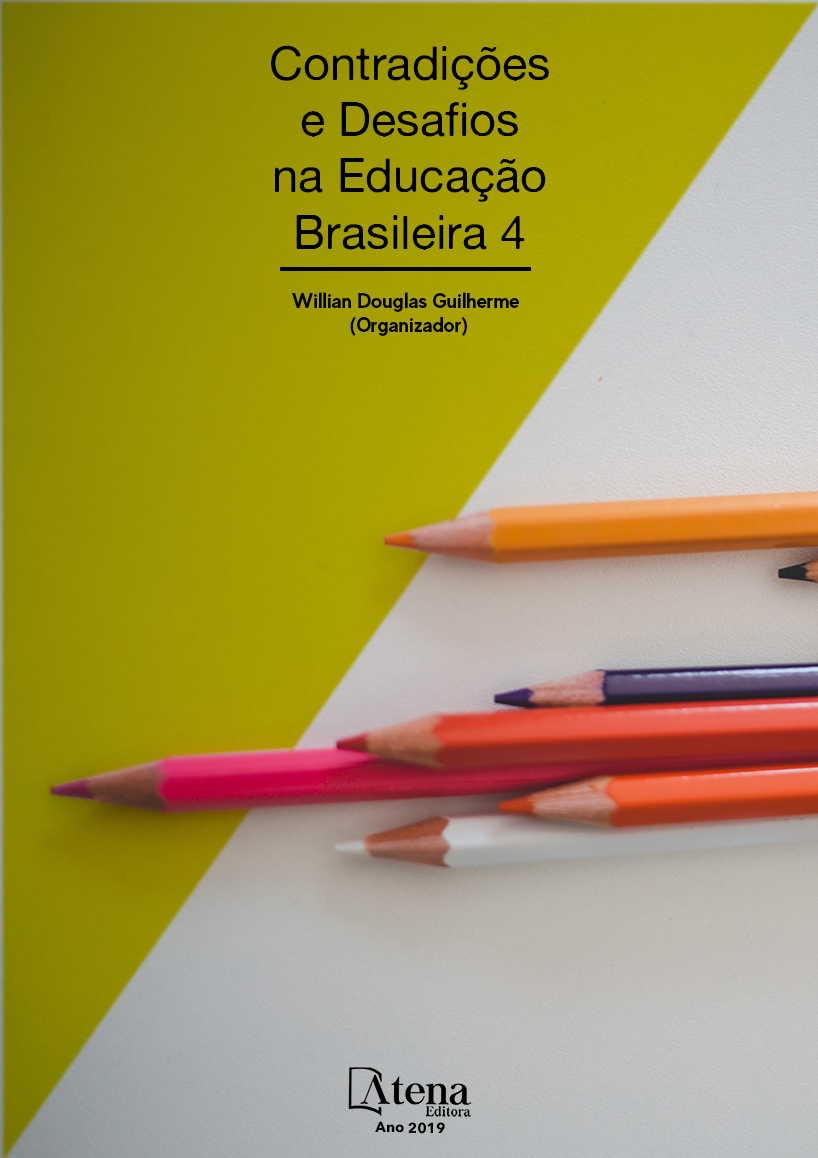
ATIVIDADES LÚDICAS E ROTINA PEDAGÓGICA: RELATO DE EXPERIÊNCIAS VIVENCIADAS A PARTIR DO ESTÁGIO EM UMA ESCOLA DE EDUCAÇÃO INFANTIL
Sabe-se que através das atividades
lúdicas a criança forma novos conceitos,
relaciona ideias, estabelece relações lógicas,
desenvolve a expressão oral e corporal, reforça
habilidades sociais, reduz a agressividade,
integra-se na sociedade e constrói seu próprio
conhecimento. Contudo, o contexto social
da brincadeira vem mudando através dos
recortes históricos. E, atualmente o uso de
novas tecnologias tem influenciado sobre as
brincadeiras das crianças. Objetivou-se com
este estudo refletir sobre a importância do lúdico
como eixo norteador da rotina pedagógica
da educação Infantil a partir de um relato de
experiência em uma escola pública da rede
municipal de Porto Velho/RO. Os dados foram
coletados por meio de observação sistemática
da rotina pedagógica da escola, realizada desde
a chegada dos alunos até a realização das
atividades em salas de aulas. Também foram
observados os momentos do planejamento
da professora. A partir das reflexões teóricas
e práticas foi possível visualizar os impactos
de duas propostas pedagógicas antagônicas,
uma que considera e outra que não considera
o brincar como ponto de partida do processo
de ensino e aprendizagem. Conclui-se que é
necessário a organização do espaço físico do
ambiente educacional de forma a contemplar as
necessidades motoras das crianças e garantir
atividades lúdicas que possam enriquecer a
rotina pedagógica, além de investimentos em
formação contínua para os professores que que
possibilita a reflexão sobre sua prática.
ATIVIDADES LÚDICAS E ROTINA PEDAGÓGICA: RELATO DE EXPERIÊNCIAS VIVENCIADAS A PARTIR DO ESTÁGIO EM UMA ESCOLA DE EDUCAÇÃO INFANTIL
-
DOI: 10.22533/at.ed.76719010624
-
Palavras-chave: Rotina. Atividade Lúdica. Prática. Planejamento.
-
Keywords: Routine. Lúdica Activity. Practice. Planning.
-
Abstract:
It is known that through play
activities the child forms new concepts, relates
ideas, establishes logical relations, develops oral
and corporal expression, reinforces social skills,
reduces aggression, integrates into society and
builds his own knowledge. However, the social
context of the game has been changing through
the historical cuts. And, currently, the use of new technologies has influenced children's
play. The objective of this study was to reflect on the importance of play as the guiding
axis of the pedagogical routine of infantile education, based on an experience report in
a public school of the municipal network of Porto Velho / RO. The data were collected
through systematic observation of the pedagogical routine of the school, carried out
from the arrival of the students to the accomplishment of the activities in classrooms.
The moments of the teacher's planning were also observed. From the theoretical
and practical reflections it was possible to visualize the impacts of two antagonistic
pedagogical proposals, one that considers and another that does not consider play
as the starting point of the teaching and learning process. It is concluded that it is
necessary to organize the physical space of the educational environment in order to
contemplate the children's motor needs and ensure playful activities that can enrich
the pedagogical routine, as well as investments in continuing training for teachers that
allows reflection on their practice.
-
Número de páginas: 15
- Dione Martins Magalhães
- Dayane Fernandes Ferreira,
- Eraldo Carlos Batista


